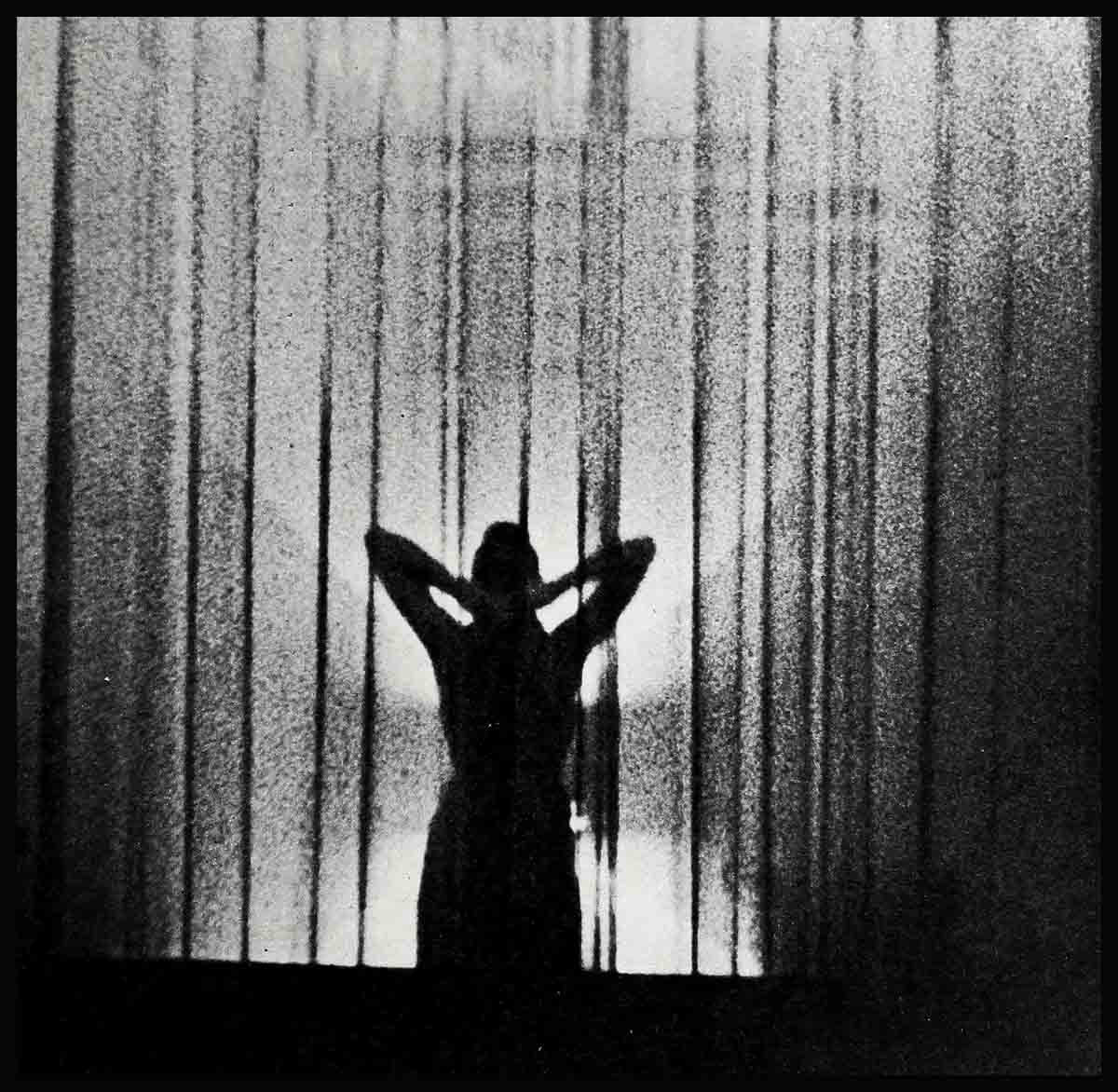
Who Is The Man Forcing Grace Kelly To Make Another Movie?
Hollywood and all filmdom were aglow over Grace Kelly’s return to the glare of the hot kleigs and whirring cameras—but two perplexing questions still remain: Why did the Philadelphia golden girl, who abdicated the multimillion-dollar throne of stardom in order to become the bride of Prince Rainier of Monaco, suddenly agree to a film comeback in an Alfred Hitchcock motion picture? And why, after everything was set, is her return delayed?
Now, for the first time, Photoplay brings its readers the inside story—the real reasons behind the Princess of Monaco’s decision.
The fact is there is little choice. She must return! Yes, Grace Kelly must return to save the crown ! It’s as simple and realistic as that. Today, Prince Rainier, Monarch of the Principality of Monaco, is in the worst and weakest position that any reigning ruler of the tiny Mediterranean land has ever been in. He is confronted with the very real peril of being forced to abdicate the 900-year-old Grimaldi dynasty—or, more drastically, outright dismissal by the French.
As we all know, Monaco is an independent principality and has been ruled almost continuously since the year 968 by the House of Grimaldi. France, however, has a treaty with this postage-stamp principality which provides certain requirements for its continuing independence. One of these is that the ruling prince must have an heir to carry on—or else Monaco would become a French protectorate. Such an heir exists in four-year-old Prince Albert Alexander.
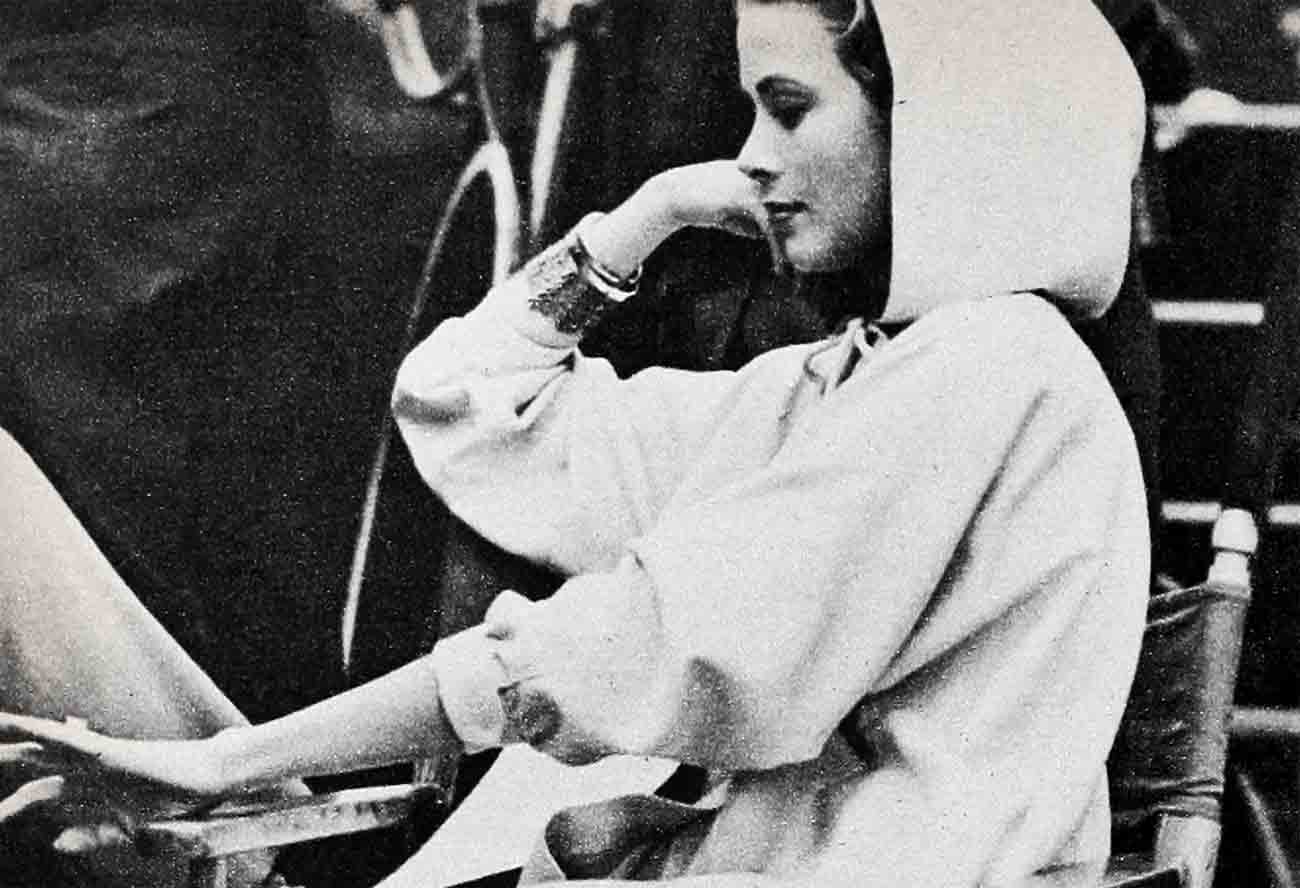
Another provision of the treaty is that Monaco must accede to the appointment of a high French official as the principality’s premier. Henri Pelletier was such a man—until the Prince fired him.
Whether it shows or not, relations between Rainier and President de Gaulle have been strained since the Premier’s dismissal. The Prince’s action at once offended de Gaulle and brought an accompanying weakening of Rainier’s position with the French government. Authoritative Paris sources say flatly that de Gaulle will not forget Prince Rainier’s slight—that the Prince’s days may be numbered.
The fact that de Gaulle did not take immediate drastic steps against the Monacan ruler is attributed to one saving Grace (please note the capital “G”). Indeed, Rainier was saved by his wife.
Grace is the personification of the royal image in the eyes of most of the world (thanks mostly to her American heritage and her renown in films). And any slap against the Prince is a slap at Grace. Surely de Gaulle wouldn’t want to incur the enmity of millions who idolize her. Not with the world’s eyes on France and the ever-hot Algerian situation.
But time is de Gaulle’s ally. No star can hibernate for a half dozen years, as Grace had done, and expect to retain the glamor, the sparkle, or popularity that was hers while performing regularly on movie screens. Absence may make the heart fonder . . . but it also shrinks the memory.
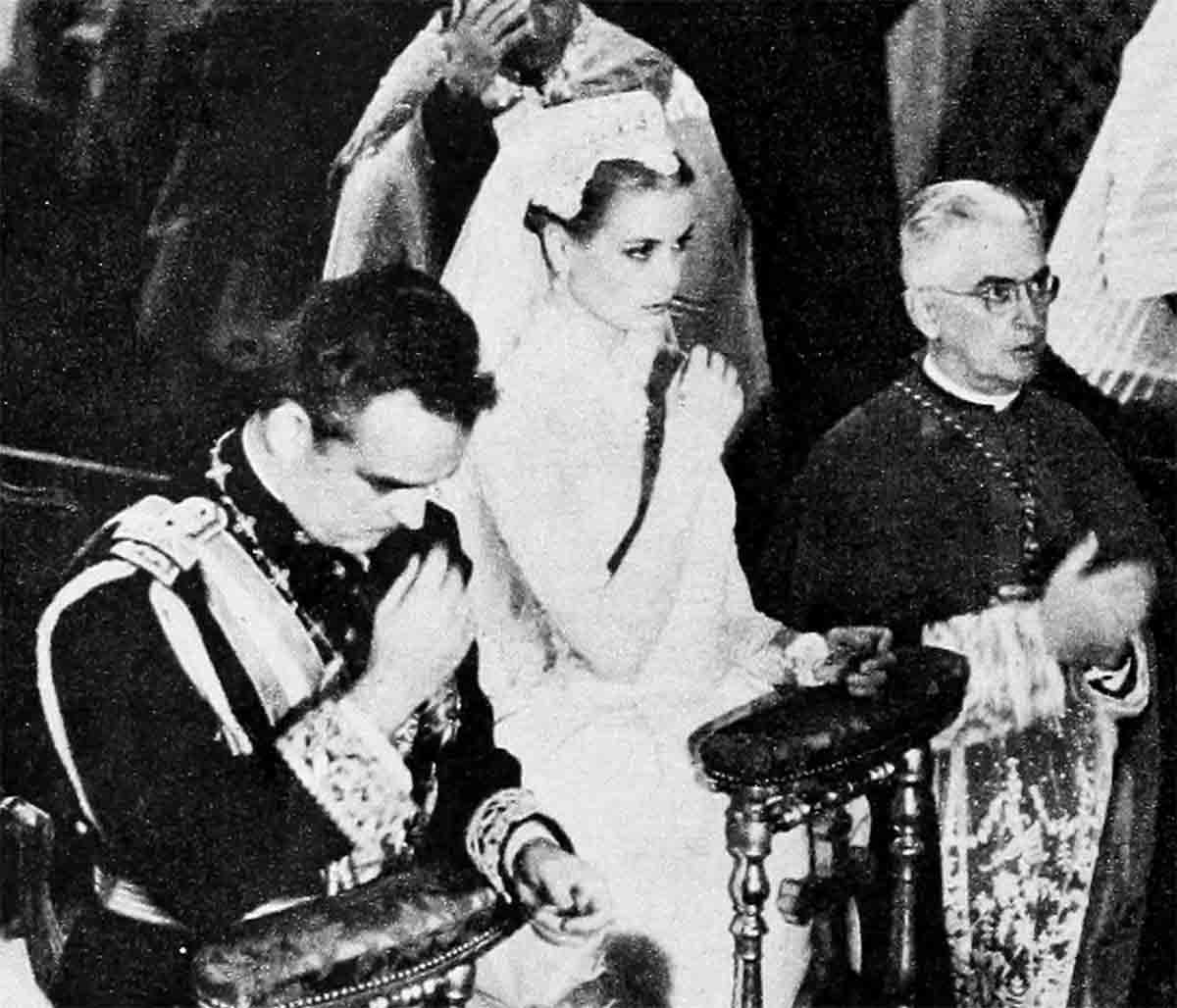
Just a princess and mother
In time, if she had remained simply a princess and a mother, Grace Kelly’s image as the majestic queen of filmland would have diminished much further. Then de Gaulle might have swung the ax down on the House of Grimaldi without a single whimper from the world.
No one was more aware of this inevitable turn of public fancy than Prince Rainier—and, of course, Princess Grace.
Something had to be done to give the royal couple’s popularity ratings a shot in the arm. Grace’s return to films was the only practical solution.
Sources from the French capital say the Government retrenched immediately with the Palace communique that the golden girl of the movies was going back to the old stand. The story made headlines in newspapers around the world. Perhaps the catchiest of all the headlines was this one in the New York Daily News:
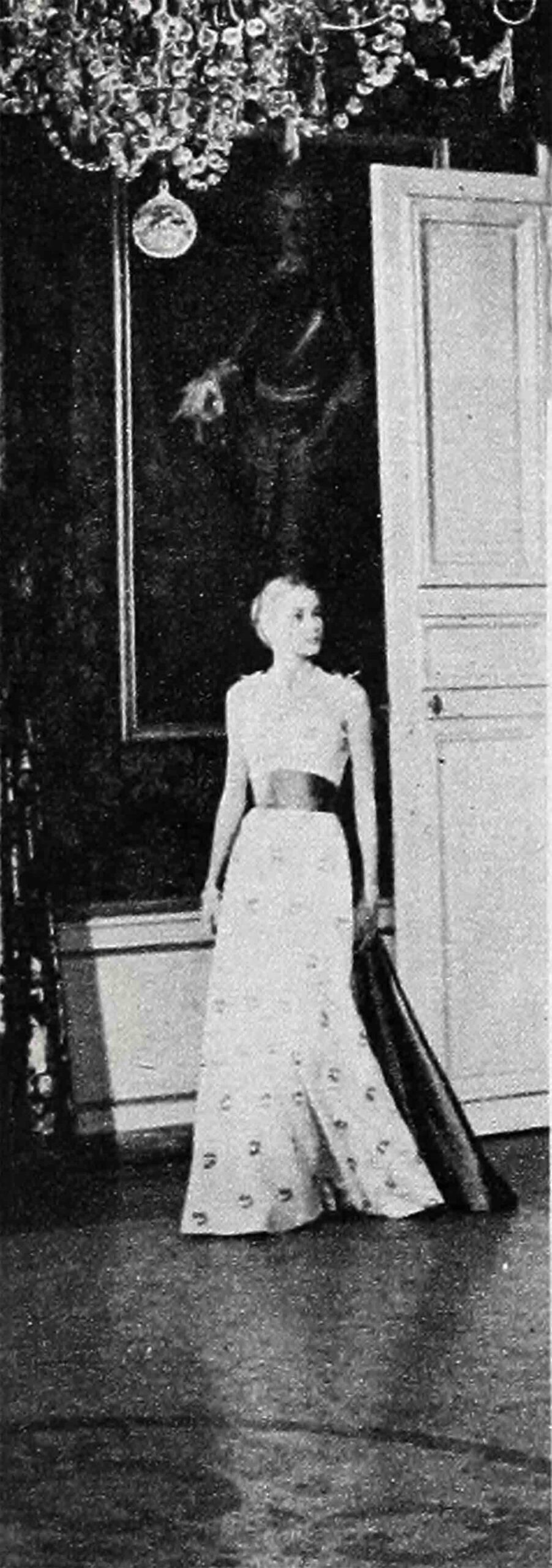
“Grace Kelly to Do a Mystery; A Mystery, Why?”
At the time, back on March 19th, it was a mystery. Countless reasons were advanced and they all made good reading. Here are some examples:
• The Rainiers needed money.
• They were having marital troubles.
• The Prince was planning to abdicate and Grace’s return to Hollywood was the first step in establishing a new home there—and in picking up her old career to help the family income.
But all of these are wrong.
Let’s examine the reports, one by one, and see why they were false.
Money?
As ruling monarchs of Monaco, the Rainiers are on the official civil list in Paris for a cool $9,000,000 a year. Their income is probably double this amount. Moreover, because of Monaco’s happy tax-free situation—none of the 4,000 Monegasques pay any direct taxes (they’re also free of the draft)—and the acquired wealth of the 900-year-old dynasty, the Rainiers have far more income than they could ever spend. The principality continues to enjoy a solvency that literally no nation knows, thanks to the Monte Carlo gambling casino which pays about ten percent of the annual $3,000,000 budget. The rest comes from a government monopoly on cigarettes, matches and the sale of postage stamps.
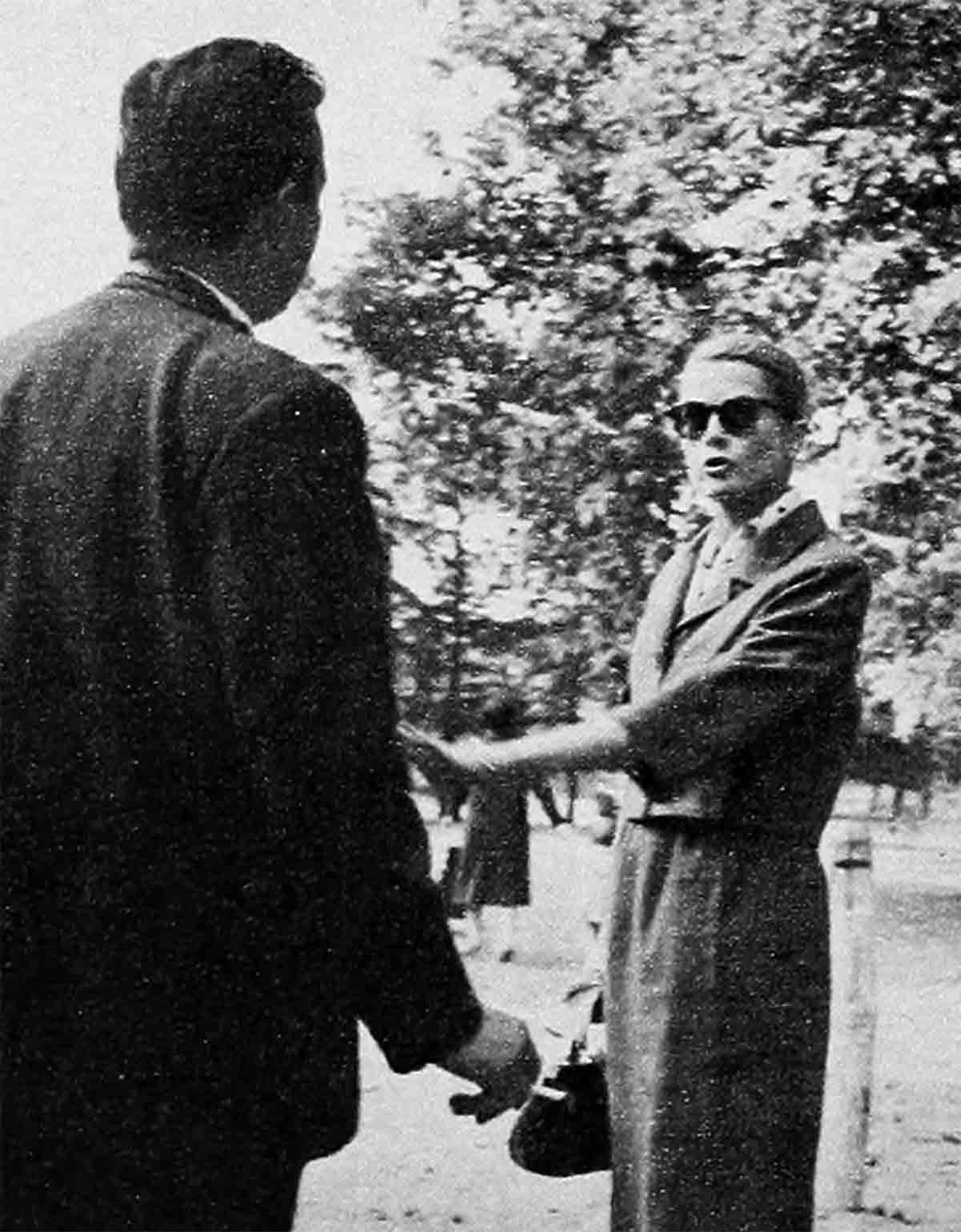
So, you can see. there’s no financial crisis in the tiny kingdom-by-the-sea.
Marital troubles?
“How stupid can people be?”
Those are the words of one who should know—Prince Rainier himself.
“It’s ridiculous to say my wife’s return to Hollywood is a signal for the breakup of our marriage. . . . It’s all very simple. My wife is always being asked to make films, she has always said no, and said no to this one at first. But she finally decided to accept the offer from Hitchcock because it would work in with a vacation trip we planned to make.
“My wife wanted to see her family, so we decided to spend a month in America with the children. At first, my wife also turned down Mr. Hitchcock’s offer to make ‘Marnie,’ but eventually she agreed when he made arrangements to change the film schedule to coincide with our vacation.”
“I’m delighted . . .”
The man who won the heart of one of America’s most beautiful film stars was asked if he had any objections to his wife’s return to the hectic movie-making grind.
“I’m delighted,” he replied.
As for Grace, there was nothing but an appearance of coolness, serenity, and contentment in the light of all the excitement.
A palace source revealed that Grace scoffed at reports that she was having domestic troubles with the Prince.
“I’m going back because I’ve read the script, liked it, and want to do this movie for Mr. Hitchcock,” she said.
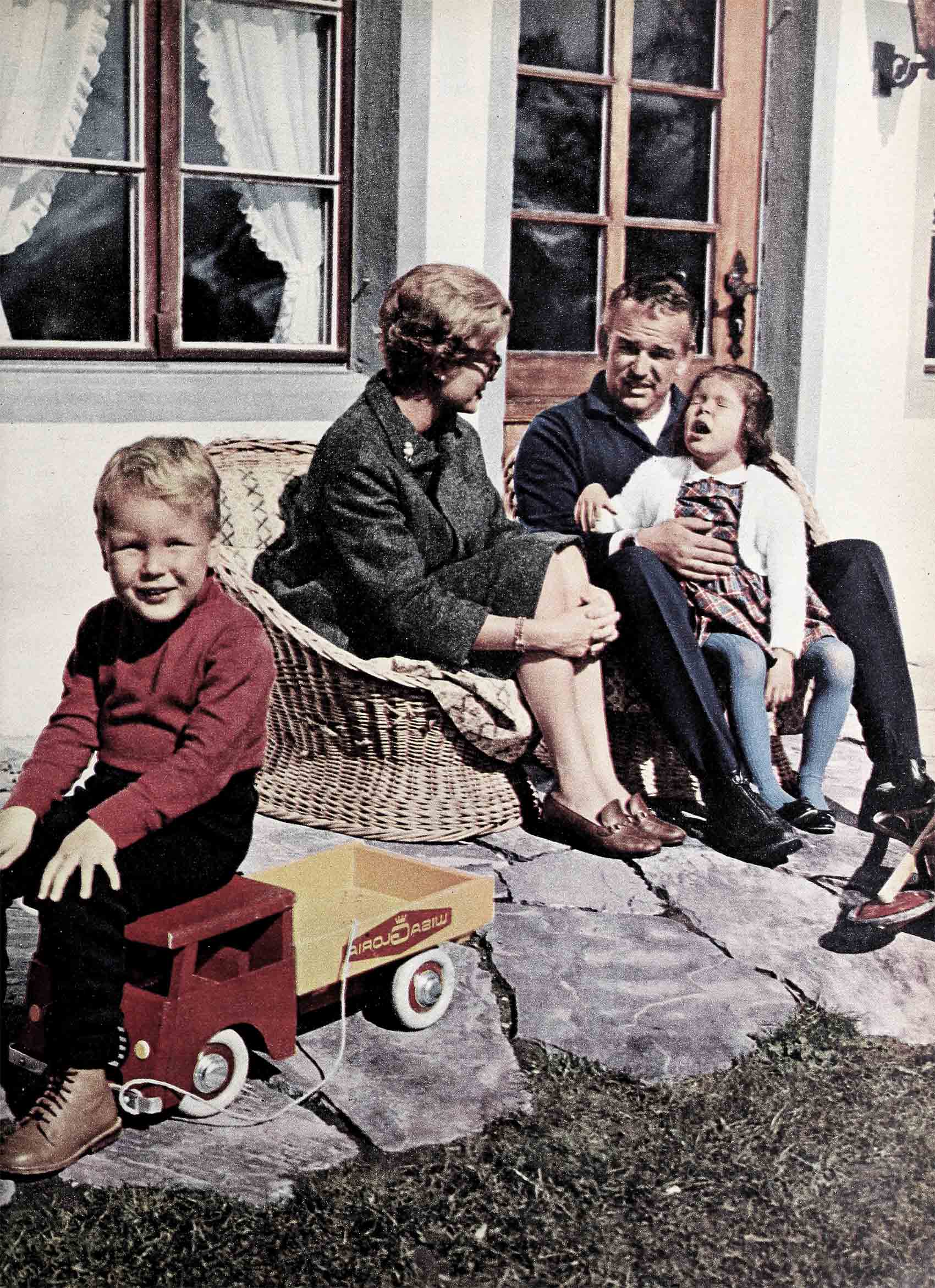
Her decision, however, was a complete turnabout from the position she took in 1956 after she reached the pinnacle as an Academy Award winning star in “Country Girl” and after her almost real-life role in “High Society.” That’s when she became Princess Grace of the Principality of Monaco, wife of the ruling head of the House of Grimaldi, and one of the most titled women in the world. In addition to being the Princess of Monaco, she is the Princess De Chateau-Porcein, twice a duchess, nine times a countess, three time a marquise, and six times a baroness.
And, lest we forget, an ex-movie queen.
Yes, when Grace acquired all the many-faceted roles of royalty she foreswore forever the life of a working girl midst the hurly burly of the film firmament—Oscars notwithstanding.
Skeptics had to concede, as time passed, that Grace meant what she had said. They were won over by her sincerity as they watched the now Princess conduct her affairs of state in true regal fashion.
From every viewpoint, Grace Kelly appeared as to the palace born.
But the blond, patrician beauty now has proved once again the age-old adage that a woman has the right to change her mind. Or change it twice—or more.
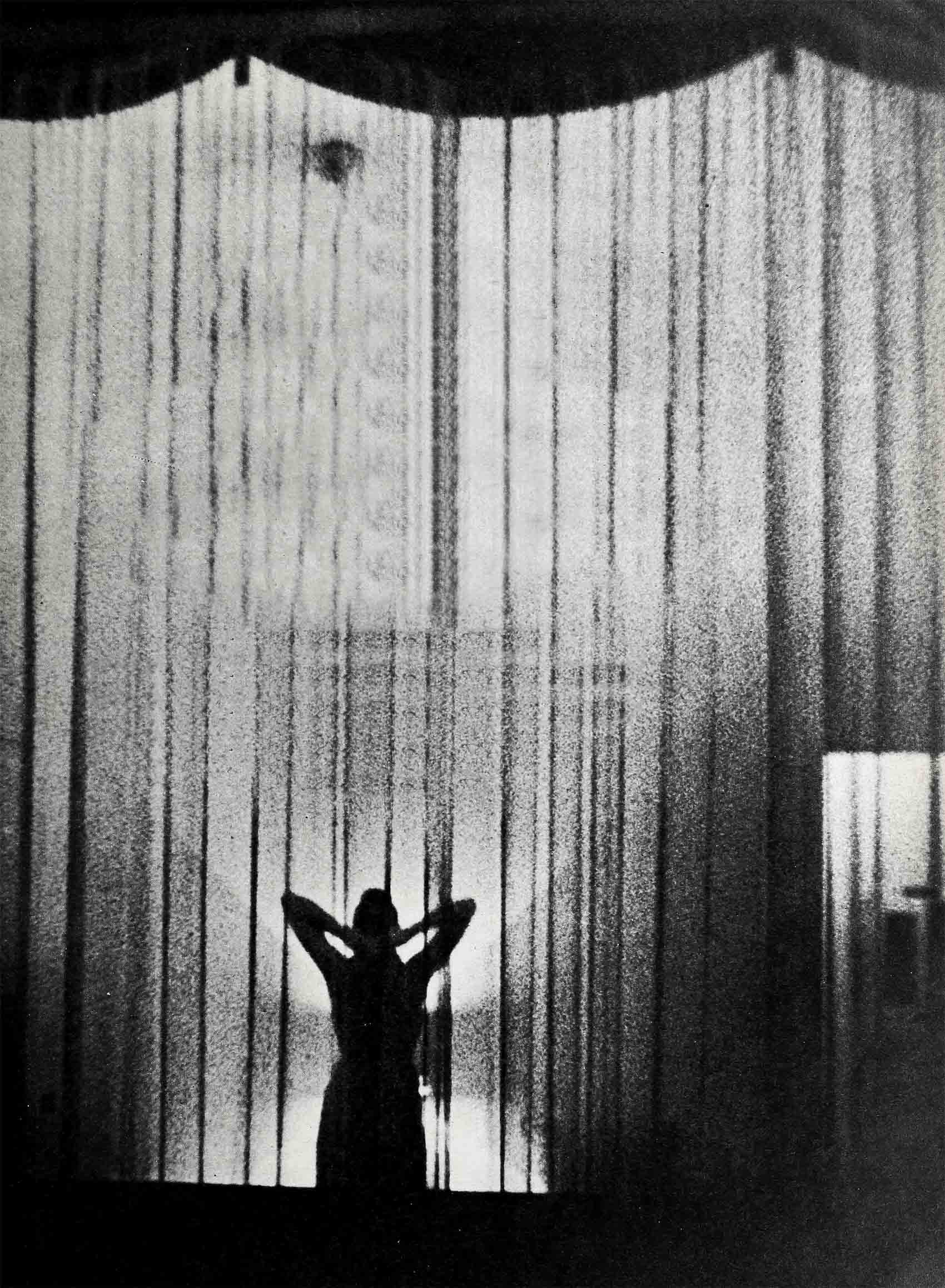
And although the Prince and Princess both insist that the filming chore is a one-shot affair, the skeptics again cry out in a collective “Oh, yeah?”
Which brings us to the third major rumor that made the rounds after the palace announcement.
Is the Prince planning to abdicate? Are the Rainiers planning to make Hollywood their new home as Grace picks up the threads of her movie career?
“The fact that my wife is making a film—to pass the time on a holiday—doesn’t mean she is going back to the film business. . . .”
Again it’s the Prince talking.
“We intend to come to the United States in September, and remain until November. Then return to Monaco.”
She’ll want more . . . and more
But the skeptics persist that Her Serene Highness, like any born trouper, misses the call of the casting director and the electric atmosphere of Hollywood’s stages.
It is entirely possible, and probable, that Grace will be back to Hollywood for more films, but we doubt that she and the Prince and the children (there’s Princess Caroline, five, besides Prince Albert Alexander) will settle down in Hollywood. It’s utterly ridiculous to consider they would. Because the whole idea of making her movie comeback is predicated on the concept of strengthening the status and prestige of the ruling House of Grimaldi in the face of those de Gaulle-stimulated rumblings which threaten Rainier’s rule.
Incidentally, the backlash of the slight attributed to the Prince when he dumped de Gaulle’s minister is not the only seismic shock being felt in the 370-acre principality. We’ve already spoken of Monaco’s happy tax-free status. But the latest word from Paris is that de Gaulle is also dissatisfied with that status.
The French President is deeply concerned over how Monaco has been drawing business firms from France into the principality to take advantage of the liberal tax laws. The word in Paris is that de Gaulle has put the pressure on Rainier to abolish the lush, tax-free living in the land he rules. And, more importantly, to put the bite on the commercial interests which have taken refuge in Monaco to avoid tax levies in France.
Whether de Gaulle can succeed in braking the exodus of French enterprises into Monaco is a moot question—one whose answer can come only from the Prince. So far, he has not indicated what he intends to do about de Gaulle’s plea.
Unless, of course, he plans to ignore the French leader and hold out for the upsurge of popularity that the House of Grimaldi will possess when his wife makes “Marnie.” How de Gaulle will fight back then is something that must remain in the realm of speculation. Chances are, however, that the Prince will win most of skirmishes.
Once Grace Kelly’s magic name is plastered on theater marquees around the world, the bouquets, the raves, the accolades will pour in. Monaco will enjoy unprecedented popularity as the celebrity spotlight is beamed on the palace with greater-than-ever candlepower.
A few observers, however, have pointed out that the Princess’ return to moviemaking violates royal etiquette, and that Her Highness will offend Monagesques.
“How absurd in this day and age!” the Prince shouted. “I find nothing wrong with what my wife is doing.”
As for the picture itself, there’s no chance that Grace will not come up with a superlative performance. She can’t help but do her best when working with Hitchcock. Grace made three of her most successful films for him before she married the Prince—“Dial M for Murder,” “Rear Window” and “To Catch a Thief.”
Significantly, too, there’s a warm spot in Grace’s heart for Hitchcock. It was while filming “To Catch a Thief” on the Riviera that Grace met her future husband.
As for the film itself, “Marnie” promises to give Grace an opportunity to play the role that seems to suit her perfectly. It’s a suspense story of a pathological liar written by the British author, Winston Graham. “Marnie” is an English girl of muddied background who goes from town to town, stealing from her employers.
But Hitchcock did not consent to his favorite Princess playing a sleazy dame, so he assigned Evan Hunter to rewrite the script. Now Grace is cast as an American from an excellent environment—which is precisely the Princess’ heritage. (Her father was the late John B. Kelly, who rose from bricklayer to multi-millionaire construction giant.)
Hitchcock minced no words in putting his relationship with Grace in its true perspective.
“She likes me, she likes to make a movie, she’s a good actress,” he said.
Why the sudden change?
That, then, is the reason Princess Grace agreed to make “Marnie.” As to the reason for the sudden “postponement” of the film, there are two versions. The AP reports from Hollywood that Hitchcock himself requested the delay because of the short time between completion of his current film, “The Birds,” and the announced starting date of “Marnie.”
From Monaco itself comes the report that the Prince asked Hitchcock to let his wife bow out of her contract because of its effect on public opinion (adverse, that is, particularly from Monagesque society) combined with Rainier’s current difficulties with the French government.
The man who was forcing Grace Kelly to make another movie is not, of course, making any comment. But it would seem that the problem de Gaulle poses has made Grace and her Prince do some second-guessing on their choice of a solution for saving their Principality. At the moment, the place of the Princess is at the side of her husband who needs her, there in Monaco, and not as a working wife off in Hollywood. Grace Kelly has proven herself a born trouper, a born princess, a born heroine in every sense—and she may yet save the crown!
THE END
—BY GEORGE CARPOZI
It is a quote. PHOTOPLAY MAGAZINE JULY 1962




